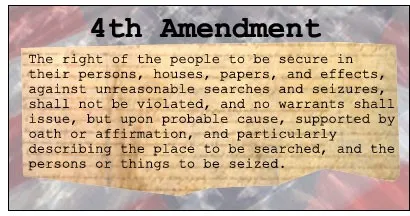Well, thanks to the warm and enthusiastic welcome I have received from the Hive community, I am keen to start blogging immediately! 😍
Here’s the first installment of a series on government surveillance. Today we will briefly examine metadata, the means used to collect it and the government's justifications for acquiring it.
So, what is metadata?
Simply put, metadata is all of the information about your communications. The term does not usually include the contents of communications, i.e. the specifics of what you wrote in an email.
Sounds innocuous enough, right? Throughout this series, we shall continually examine the problems around its collection and storage by democratic governments.
Why does the government collect my metadata?
Since 9/11, many democracies have passed sweeping data collection legislation, simultaneously hiding the extent and nature of metadata acquisitions.
These new security laws use vague definitions for actions considered "terrorist" in nature and increase the breadth of powers that governments may use to spy on ordinary citizens. For example, in 2001, the U.S. Congress enacted the PATRIOT Act, which allows the FBI to search through various records with just a closed-door hearing from the Foreign Intelligence Surveillance Court.
At this point, you might be thinking, "That's reasonable because these laws and extra powers are making me and my country safer." After all, if we had allowed the government to surveil populations sooner, the tragedy of 9/11 could have been prevented, right?
Not so fast.
The 9/11 Commission Report, produced by Congress’ commission into the events that led to 9/11, wrote that American intelligence agencies had enough pieces of information to put together what was going to happen that fateful day. However, communication failures stopped them from putting the puzzle together and preventing the attack.
The committee wrote:
“Earlier in this report, we detailed various missed opportunities to thwart the 9/11 plot. Information was not shared, sometimes inadvertently or because of legal misunderstandings. Analysis was not pooled. Effective operations were not launched. Often the handoffs of information were lost across the divide separating the foreign and domestic agencies of the government.”
Moreover, the report never suggested that further surveillance could prevent future terrorist attacks. Rather it proposes that better communications across agencies could prevent another 9/11-like event.
“The U.S. government must find a way of pooling intelligence and using it to guide the planning of and assignment of responsibilities for joint operations involving organizations as disparate as the CIA, the FBI, the State Department, the military, and the agencies involved in homeland security.”
Privacy - a casualty of the "war on terror"
Much of the collected data is unrelated to terrorism, and despite prohibitions on spying on U.S. citizens, many of the NSA's surveillance activities are focused on millions of Americans. This metadata is collected and stored for years. In the U.S., counter-terrorism agencies are allowed to mine the data without a warrant, ergo without oversight. Remember, these are U.S. citizens with no known terrorist affiliations.

Nonetheless, governments collect metadata in the name of security, despite continuous reports finding that it does not prevent terrorist activities—a point for a future blog post.
Therefore, for no real reason, personal privacy has become a casualty in the war on terror.
How is my data collected?
In Australia and the U.S. (probably more states, too), intelligence agencies may compel communications companies to provide them with customer information, placing the businesses under gag orders to prevent them from alerting customers. In fact, by 2011, the U.S. alone was storing about 15 billion new internet metadata records daily through collaboration with the private sector.
This metadata collection is invasive, challenging individual citizens' privacy.
Capturing metadata without the content is how companies and the government avoid rights-based discussions and legal protections for citizens. However, with metadata and considerable computer processing power, the government can assemble a picture of citizens' complete personal and professional social networks and habits.
Additionally, since being connected to the internet requires your phone to talk to cellphone towers, the precise location of everywhere you visit, how regularly you go to your friend's house, and how long you stay at every site are also captured in metadata.
Is the elimination of everyone's privacy a price worth paying in the name of safety? Just how much safer are we? In my next blog post I hope to address datamining, its usefulness in foiling terrorist plots and more.
Please, don't forget to let me know what you think in the comments!🙏